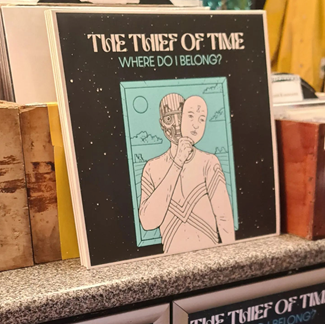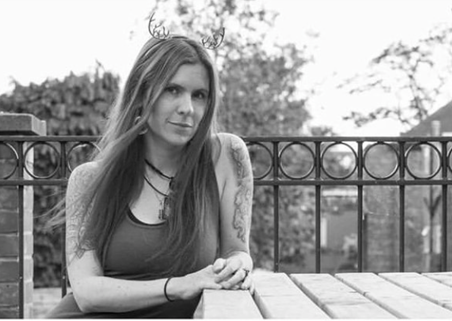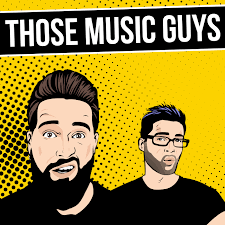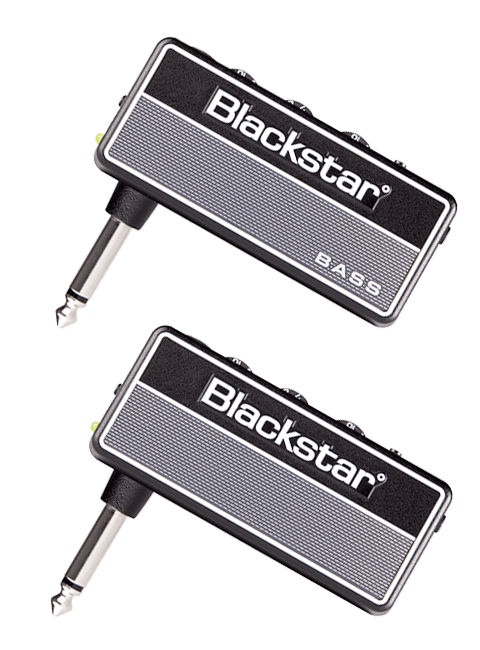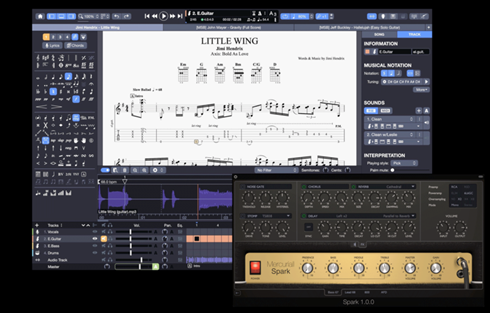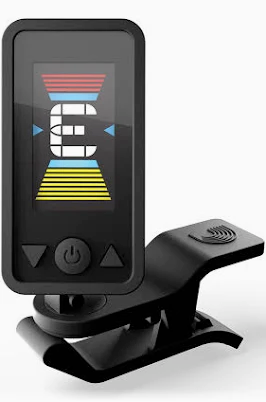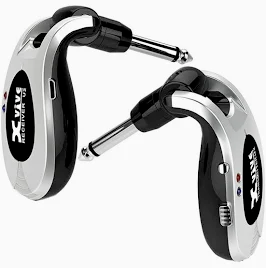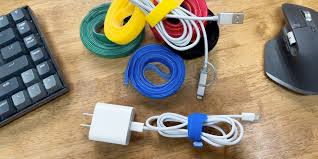Marvel Guitar Tuition
New Music Updates
I think I’ve done a bit of everything this year, playing festivals with a rock band, working as a producer for a folk musician, session work for an electronic music album and a few other things.
I pretty much offer unlimited support outside of lessons for anyone who is considering pursuing music as a career or for anyone who wants to take their hobby out of the house and into the local music scene. I don’t really market my musical projects very much so none of this stuff will look super glamorous but all of the projects included in this blog were paid jobs, received positive reviews and most importantly were very fulfilling creative projects. So if any of this looks like something you’d like to get into then feel free to ask me for any advice.
2023 Highlights (in no particular order)
Square Wild
Genre: Prog Rock
My Role: Guitarist
Link: https://www.squarewildband.com/
In April I joined a band called Square WIld. I really got dropped in at the deep end here.
I was replacing someone who had been in the band for about 4 years. The band had won Prog Magazine’s Best Unsigned Band award in 2022 and so had a full feature written about them this year. (Issue 138 if you’re interested)
They included me in the photoshoot and mentioned in the article that I was about to start playing with them. I then had about 6 weeks and 2 rehearsals to learn the set. The songs are harder than anything I ever had to play during my music degree or any gigs I’ve done since then. My first gig with them was the semi final of a competition. We went on to win the semi final and the whole competition. I then found myself playing the Bloodstock festival a few months later to 2000+ people and met a few musicians that I’d been a fan of for a long time.
Love Letters From Space
Genre: Psychedelic/Glam
My Role: Solo artist
Links: MikeGrubertMusic.com
A couple of years ago during lockdown I recorded a solo EP. It was really just a personal project at first. I sort of just had some sounds in my head that I wanted to turn into finished songs. A few of my friends talked me into playing the material live.
In March we booked a small venue and played the whole EP from start to finish (+ few new songs and some covers)
Once I’ve finished learning the rest of the Square WIld back catalog I’ll revisit this project.
Thief of Time Album
Genre: Pop/Electronic
My Role: Session Guitarist
Link: https://www.piccadillyrecords.com/152661/The-Thief-Of-TIme-Where-Do-I-Belong-Sprechen
My job on this one was pretty much just to show up and play guitar. The album is mostly the work of Chris Massey. He’s originally a DJ/Producer but has branched out into all sorts of creative projects over the years in music and film.
It was a really interesting job because I’ve not really worked with an electronic pop producer before and also we recorded my guitar parts quite early on in the process. So I had no idea what the finished songs would sound like. Chris would show me a beat, a few synth parts or a bass line ect, then I’d come up with some guitar parts and he'd record them and pick the bits that he needed. Then a few months later, I heard the whole thing finished on vinyl. There were singers on the record with me that I’d not met and the rough ideas I’d heard a few months back were full, perfectly balanced sounds,
Shelli Le Fay: Genre Folk/Acoustic singer-songwriter
My Role: Producer
https://linktr.ee/shellilefay
Shelli has played in many bands as a violinist, singer and guitarist and is now starting to record her solo music. My role in this was mostly to handle the tech stuff, tracking editing, mixing etc but the most interesting part for me was having her describe sounds to me and then figuring out ways to make those sounds with instruments and software.
Those Music Guys Podcast
Me and my friend have done this podcast for a few years on and off. The new thing this year was that another podcast host, Mark Cooper, asked us to collaborate. His show is way more established than ours so this was a fun new experience. He booked a venue in Liverpool and we did a live episode with an audience Q and A. We made some new connections through this so we have some interesting guests booked in for 2024
December 2023 Topic
Music Gadgets
It’s nearly Christmas so here's some info on some of the items I get asked about most in lessons and at gigs. (I’m no way near famous enough to be sponsored by any of these companies so this is all stuff I actually use) In general I’l have tried a few similar products over the years and eventually settled on these. I’ve put links to the product pages and a rough estimate of the prices. I usually ask Rick if he can get something for me and if not I just find it online.
Headphone Amp
https://blackstaramps.com/amplug-2-fly/
These things just plug in where your normal cable usually goes. Then you plug your headphones into and your phone too if you want to. These cost around £30 to £40 but the sound quality is pretty impressive.
I use mine before gigs. Sometimes there’s hours between sound check and performance so I’ll find a corner somewhere or just go to my tent if it’s a festival and run through the set. It means I can be fully warmed up for the gig and I can leave all my other equipment setup and just use my guitar, headphones and some backing tracks I keep on my phone.
A few companies make these, I have the Blackstar one but the Vox ones also looks good, and I’ve bought one as a gift for someone else. I recommend putting your phone in flight mode when using it to avoid interference but in general it’s super simple to use.
Notation Software
https://www.guitar-pro.com/
This is that guitar tab and notation software that I use in lessons. Let me know if you’re planning on getting this as I can add you to an education program that means you’ll get it for half price. (full price is around £60, one off payment, no contract)
Once you buy the software, the full tabs, scores and MIDI files for millions of songs are available for free.
Clp on tuner
https://www.daddario.com/products/accessories/tuners/
Simple but handy. Phone apps are actually really good for tuning but if you’re in a room that has background noise then a clip on tuner works better because it picks up the vibrations directly through the wood. Clip om tunes are around £10 to £15. All the brands I’ve tried have been fine but I like the D'addario and Snark ones best.
Wireless Kit
https://xvive.com/audio/product/u2-guitar-wireless-system/
These are around £100 and they make live music so much easier. The old ones used to have interference problems but these ones are great. They have 4 channels so if you and your band mates can have the same type without any problems
Recording Interface
https://focusrite.com/scarlett
https://www.behringer.com/product.html?modelCode=P0AVV
These vary in price a lot so I’ve included a few links.
I have one that’s around £80 at home and one that’s £700 in my teaching room at A4. I bought one, my friend has one that was around £40 and works fine.
Basically these are used to record sound into your computer, you can plug guitar straight into these or plug microphones into them. If you’re getting into home recording then this is the first thing you’ll need.
Color Coded Velcro Cable ties!
Self explanatory really. These things are simple but very useful. Not sure which brand I have as they’re all pretty similar.
Geting the most from your practice time
Tuesday, May 14, 2019 by Benn Hammon | Uncategorized
Getting the most from your practice time.
A little bit of thinking and planning can completely remove the frustration that many people experience when attempting to learn to play an instrument. Here are some tips that will help you get the most out of your practice time.
Setting Goals
Firstly, you need to set yourself a goal….or a series of goals. This means you need to decide why you're practising. This is different for every person so it's worth taking the time to think about it for yourself. Do you have certain songs you want to play? Do you want to create your own music? Do you want to take a graded exam? Your long term goals will determine what you need to practise in the short term.
If you're struggling to choose any specific goals then I suggest you seek some inspiration through listening to more music, going to gigs or just by talking to other musicians and music fans.
Decide how much time you will dedicate to practice.
Once you have a clear vision of what you want to achieve, the next step is to decide how much time you are willing to spend practising. If you are a beginner or a hobby musician and you want your playing to keep moving forward, you'll need to commit to a minimum of four practice sessions a week; each session needs to be at least 30 minutes. If you want to be a professional or semi professional you'll need to treat practising like it’s your second job for a few years.
Whatever your goals are, I can honestly tell you that I've never met anyone who regrets the time they spent practising and I've met hundreds of people who have the opposite problem.
Three types of practice.
When you practise, there are three key areas to focus on. You can do this in any order and spend different amounts of time focusing on each area but I highly recommend you keep a hand in all three areas each week.
1.Playing songs you already know.
Firstly this helps you remember the songs in case you get put on the spot and someone asks you to play them a song. It's also a chance to have some fun and improvise a little bit.
2.Practising new material.
This can be learning a new song or writing a new song. Choose something that's challenging but realistic. Also, don't be afraid to spend a long time working on one song or even part of a song.
3.Exercises
For beginners, this pretty much means practising chord changes and for intermediate/advanced students it can mean scales, listening skills, rhythm skills and more.
This takes a bit more focus and patience than the other two areas but it's really the fast track to reaching your goals. Also, its character building!
How to practice.
Here are a few hacks that will help you speed up progress in all of the three areas without taking up any extra time.
Target difficult sections.
If you are learning a song and you can play parts of the song really well and you struggle with other parts, then it makes sense to focus most of your time practising the difficult parts. Learning the song will take less time if you stick to this method.
Slow down. This is counter intuitive but if you practise slowly, you'll learn faster. So many times i've seen people try and play the same riff over and over again at full speed and get it wrong every time. You could do that for hours and make zero progress. Instead, slow it down, play it super slow but absolutely perfect. Get really comfortable playing it slowly and accurately and then very gradually speed it up. This amounts to (you guessed it): More progress in less time.
Use a reliable method for memorising.
There's a simple method that I teach to all my beginner students and I actually still use this method myself when I'm practising for gigs and recording sessions.
Play the first four notes…, pause…, play them again…, pause…, play them again… on the 4th time, try to play them from memory. Don't worry if you don't get it first time, keep repeating them unit you can do it from memory three times in a row.
Once you've done this with the first four notes, do the same with the next four. Once you can do this with the next four, go back to the beginning and play all eight notes.
Then learn the next four, then go back to the beginning, etc etc.
If you gradually get into this habit, you'll be able to memorise music much faster. For some tours, I've learnt 30 songs in a week using this method.
Play the same section over and over again but "experience" a different aspect each time… Ok I know that sounds a bit abstract! Play it a few times only thinking about your left hand, then play it only thinking about your right hand, then play it a few times but instead of thinking about your hands just focus on listening to yourself playing it. Think of any other variations you can (only looking at your right hand, only looking at your left hand, playing with your eyes closed, focusing on just your sense of touch, focusing on your timing etc)
Start implementing these strategies right now: the results will be spectacular.
The importance of listening to music.
Tuesday, May 14, 2019 by Benn Hammon | Uncategorized
The importance of listening to music.
Learning to play an instrument can be one of the best decisions a child can make. Parents often ask me for advice on how to get the most out of music lessons. If you’re working a busy job and your kids have loads of homework then it can be hard to find time to sit down and help them with their practice. There’s so many distractions for kids now as well. I’m not even 30 yet and I feel really old seeing children engrossed in smartphones, tablets etc. When I first picked up a guitar, CD players were the hight of technology. Kids still do get excited by the idea of starting a band and playing gigs or making youtube videos, but many kids freely admit that they struggle to motivate themselves to practice consistently. This usually results in parents feeling like they have to nag the kids to practice. Like any good teacher, I think a bit of gentle nagging can often be a good thing, but how great would it be if your child started voluntarily putting down their electronic gadgets and picked up their guitar to practice?
Here’s the first step to take towards making that happen. It might seem simple but it’s something that is often overlooked by parents, students and teachers.
Find out which music they love the most. One of the first questions I ask a new student, weather they're 5 years old or 80 years old (yes I have taught an 80 year old before!) is ask them what their favourite music is.
Which student do you think will learn faster, the student who says “I don’t know” or the the student who starts listing all their favourite songs, favourite musicians, favourite bands, favourite albums and favourite genres?
Neither of my parents are musicians but I certainly grew up listening to music. One of my earliest memories is dancing round the living room with my brother and my sisters, listening to my Dad’s cassettes. After a few months of this we all began to develop different tastes in music and we would argue a bit about what song to put on next.
Of course I don’t want to cause any extra sibling arguments in your home, but for a child to be motivated to practice an instrument, it is essential that they start to discover which music they are truly passionate about. Once they’ve found the songs they like they’ll want to listen to them again and again. This will help so much with their sense of rhythm and pitch and at the same time they will start to build up a picture in their head of the kind of musician they want to be. That’s when they start to realize that a musical instrument has much more to offer them than their electronic gadgets.
In the next blog I’ll be explaining a few ways to help your kids discover music and a few tricks to motivate them to practice but here’s a good place to start.
Try asking them to name their 10 favorite songs. If they can’t then don’t worry, their favorite ones are out there somewhere and we just need to find them. Start by introducing them to your favorite songs or seeing if you can find their favourite radio station. If you find one or two songs they like then try using youtube and spotfly to suggest more.
If they already can name 10 songs then try finding different versions of those songs on youtube. For most songs it’s easy to find a video of someone playing a simplified version on a guitar or keyboard in their bedroom.
Start with that and let me know how it goes.
Preparing for a graded exam
Tuesday, May 14, 2019 by Benn Hammon | Uncategorized
Preparing for a Graded Exam
Here are a few tips for anyone who is preparing for a graded exam.
-
Make sure you have read through the whole book so you know what you’re up against. As well as performing the songs, there are lots of technique exercises and listening tests that might catch you out if you are not properly prepared.
-
Make sure you are listening to the songs on a regular basis. You will learn much faster if you do this. Listen to the graded versions and listen to the original versions so you really understand what the song is supposed to sound like. I also recommend listening to similar songs to the ones you are learning particularly songs by the same guitarists.
-
Have a practice schedule. This could be anywhere between 30 minutes and 3 hours a day depending on what your goals are. Make sure you include a bit of everything in your
-
Know why you’re practicing. If your only goal is to get a certificate with your name on it then it’s highly unlikely that you’ll learn the exam material properly. The students who get the highest grades are constantly looking forward to picking up their guitars weather they have an exam coming up or not. This is because they have a clear picture in their head of how they want to sound when they are playing their guitar.


